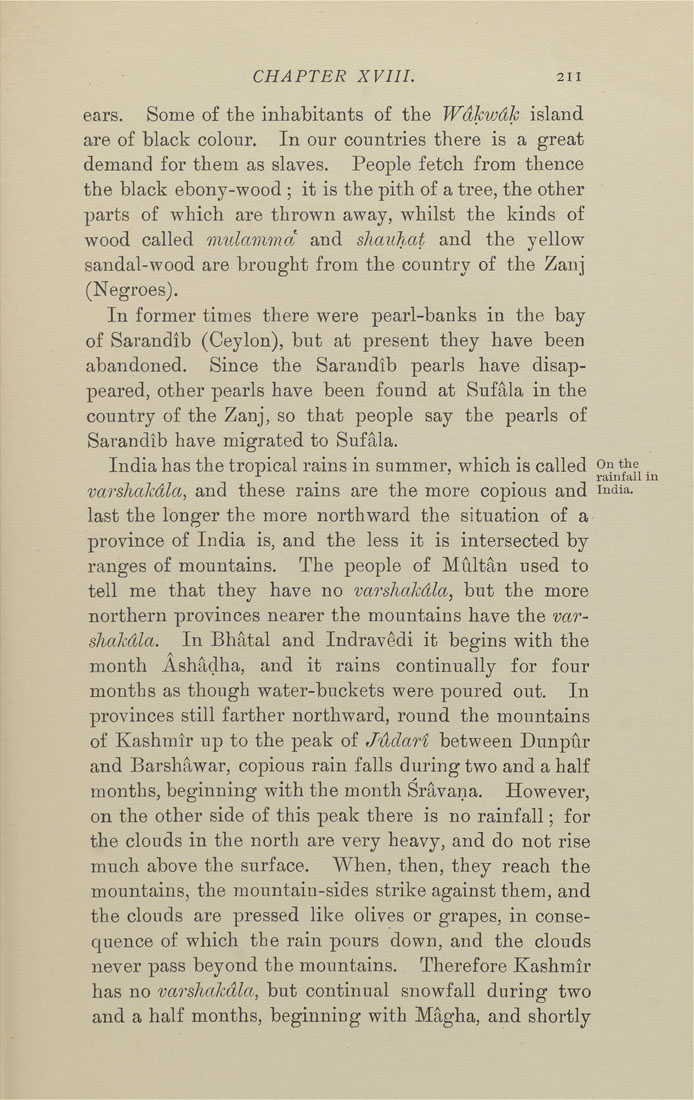Bīrūnī, Muḥammad ibn Aḥmad, Alberuni's India (v. 1)
(London : Kegan Paul, Trench, Trübner & Co., 1910.)
|
||
|
|
|
|
| Page 211 |

CHAPTER XVIII. ears. Some of the inhabitants of the Wdkwdk island are of black colour. In our countries there is a great demand for them as slaves. People fetch from thence the black ebony-wood ; it is the pith of a tree, the other parts of which are thrown away, whilst the kinds of wood called mulammci and shauhat and the yellow sandal-wood are brought from the country of the Zanj (Negroes), In former times there were pearl-banks in the bay of Sarandib (Ceylon), but at present they have been abandoned. Since the Sarandib pearls have disap¬ peared, other pearls have been found at Sufala in the country of the Zanj, so that people say the pearls of Sarandib have migrated to Sufala. India has the tropical rains in summer, which is called O" ^^^ ^ , , rainfall in varshakdla, and these rains are the more copious and India, last the longer the more northward the situation of a province of India is, and the less it is intersected by ranges of mountains. The people of Miiltan used to tell me that they have no varshakdla, but the more northern provinces nearer the mountains have the var¬ shakdla. In Bhatal and Indravedi it begins with the month Ashadha, and it rains continually for four months as though water-buckets were poured out. In provinces still farther northward, round the mountains of Kashmir up to the peak of J'ddari between Dunpur and Barshawar, copious rain falls during two and a half months, beginning with the month Sravana. However, on the other side of this peak there is no rainfall; for the clouds in the north are very heavy, and do not rise much above the surface. When, then, they reach the mountains, the mountain-sides strike against them, and the clouds are pressed like olives or grapes, in conse¬ quence of which the rain pours down, and the clouds never pass beyond the mountains. Therefore Kashmir has no varshakdla, but continual snowfall during two and a half months, beginning with Magha, and shortly |
| Page 211 |







